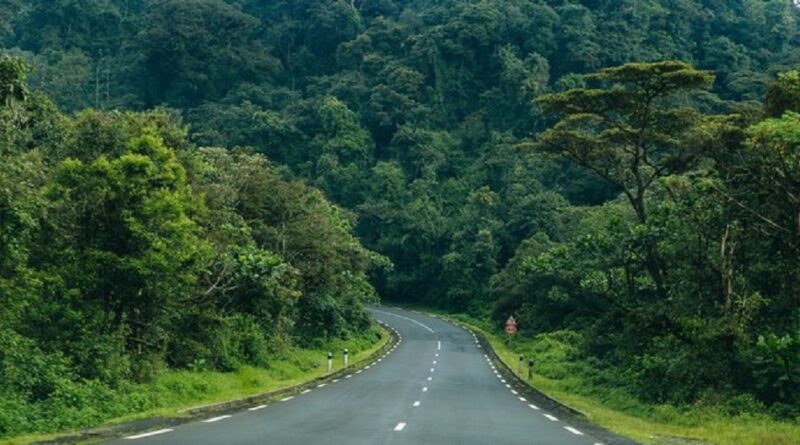In the 31 years since Liberation, Rwanda has transformed environmental protection
A 1996 report, compiled shortly after the 1994 Genocide against the Tutsi, revealed that Rwanda had lost about 65% of its forests. This loss was attributed to soil erosion, unregulated deforestation, poor land use, and other factors that significantly impacted the country’s trees, soil, biodiversity, and the broader ecosystem.
To address this issue, the government set a target to restore forest cover to 30% of the country’s total surface area. This goal was successfully achieved by 2019, largely through community initiatives such as Umuganda (community work).
Local communities, in collaboration with environmental conservation projects, have contributed by planting trees along roadsides, riverbanks, lakeshores, and within farmlands. These efforts have played a major role in closing the ecological gap.
One community member noted: “There are trees we planted along steep hillsides that have helped to control erosion. We also interplant some tree species with crops, which not only help to reduce erosion but also protect against wind. For instance, species like Calliandra and Grevillea regenerate well and help restore soil fertility in eroded farms.”
In addition to environmental benefits, these trees have enhanced food production. Fruit trees such as avocado have been widely planted on farms, contributing to nutrition and household income.
Over the past 31 years, Rwanda has also taken decisive action to ban single-use plastic bags and other non-biodegradable plastic products. Today, more than 30 plastic waste collection centers exist across the country, and over 14 recycling factories turn this waste into durable products.
Engineer Rubonezangabo Telesphore, who works at one of these recycling plants, explained: “Plastic is a business today. Just as someone wakes up to tend to their tea plantation, they could also go out to collect plastic waste nearby. When they bring it to us, we pay them, and that becomes a source of income for their family. Life improves.”
In the same period, Rwanda has restored 12 wetlands, including the heavily degraded Rugezi Wetland.
According to Beatrice Cyiza, the Permanent Secretary at the Ministry of Environment, the restoration of these wetlands has generated substantial benefits for both the country and nearby communities:
“Rugezi was in a critical state, but ever since we legally protected wetlands and began restoring them, we’ve seen tremendous change. This wetland now ensures a consistent water supply that powers hydroelectric plants which had previously stalled due to drought.”
She emphasized that wetlands are essential for preventing floods and ensuring energy generation, and their conservation is a national priority.
The Rwandan government is currently implementing and planning numerous environmental conservation and climate resilience projects, as part of the Vision 2050 strategy aimed at fostering sustainable development.
Beatrice Cyiza added: “One of our key projects is the Volcanoes Community Resilience Project (VCRP), located in the northern Vunga corridor. It focuses on building resilience in communities around the Volcanoes region, managing volcanic water runoff, and constructing durable housing for vulnerable populations.”
“Another ongoing project is aimed at building resilience in the Congo Nile Divide area. Activities include planting trees along riverbanks and farmlands, constructing terraces, and promoting climate-smart agriculture.”
Among other achievements, Rwanda succeeded in registering Nyungwe National Park as a UNESCO World Heritage Site. Additionally, Gishwati Forest has been upgraded into Gishwati-Mukura National Park, joining the country’s portfolio of protected areas, which also includes Volcanoes National Park and Akagera National Park. A new island-based national park is also being planned.
By 2030, Rwanda aims to reduce its greenhouse gas emissions by nearly 38%, with a net-zero emission goal set for 2050. The country has committed to eliminating all environmentally harmful practices, while simultaneously building local capacity, promoting clean energy investment, reducing reliance on polluting products, and preventing illegal deforestation.
Citizens increasingly demonstrate awareness and appreciation for environmental and biodiversity protection,both in forests and aquatic ecosystems marking a stark contrast from attitudes prior to the country’s 1994 liberation.
Source: Radio Rwanda

